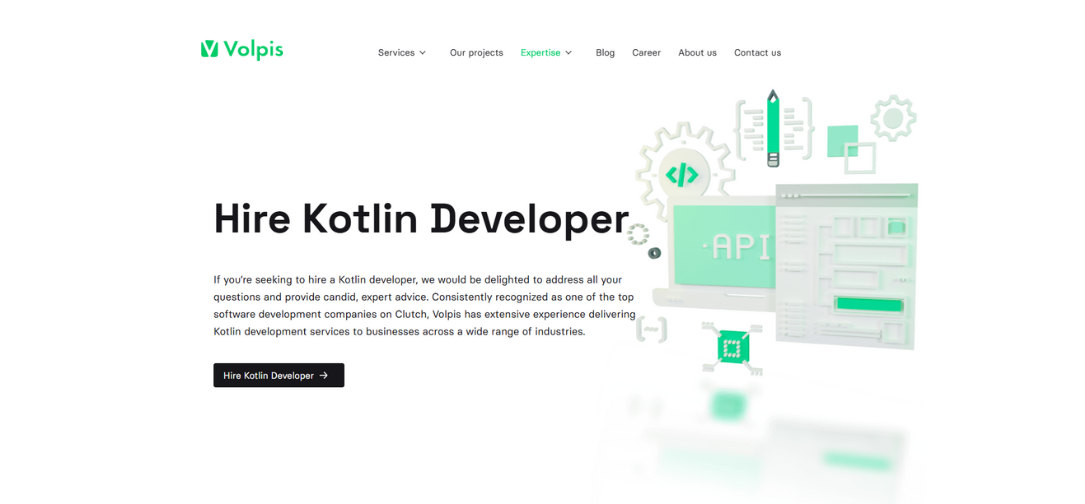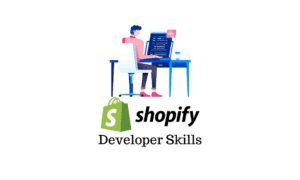The wrong stack won’t just cost you time — it can sink your MVP. When you’re building an MVP, your tech stack isn’t just a technical choice — it’s a strategic one. At Volpis, we’ve helped 100+ founders avoid those traps.
Whether you plan to work with Kotlin developer to build an Android app, bring a Swift developer on board for an iOS version or hire Flutter developer to build both from one codebase, our team would be happy to answer all your questions. You can always connect with us via info@volpis.com
Consistently recognized as one of the top software development companies on Clutch, the Volpis team has spent years providing custom app development services with Kotlin, Swift and Flutter to businesses worldwide. In this article, we’ll share our approach to selecting the right tech stack.
What You’re Really Deciding
Founders don’t ask ‘Kotlin or Swift?’ — they ask: ‘Do I need iOS first? Can I afford to build both? Should I go with Flutter and move fast?’ That’s the real choice.
Choosing between Swift, Kotlin, or Flutter isn’t just about languages — it’s about platform strategy.
- Kotlin powers native Android apps.
- Swift powers native iOS apps.
- Flutter gives you both with one codebase.
Start with your product goals:
- Do you need to get to market fast?
- Are your users mostly on one platform?
- Are there technical constraints (e.g. real-time tracking, hardware integrations)?
When It Makes Sense to Go Native
Sometimes, building separate apps for iOS (with Swift) and Android (with Kotlin) is the right call.
Go native if:
- Your app needs maximum performance
- You’re building complex features (e.g., low-latency location tracking, AR)
- You’re investing in a long-term product with deep platform integration
- Your user base is heavily skewed toward one platform (e.g., iOS-first markets)
The tradeoff: more time, more money, more complexity. You’ll need two teams, and maintaining both apps takes effort.
- Looking for native iOS devs? Hire Swift Developer
- Focused on Android? Hire Kotlin Developer
When Flutter Is the Smart Move
If speed, flexibility, and budget matter — Flutter is often the best call for MVPs.
Why Flutter?
- Single codebase for iOS and Android
- Faster time-to-market
- Lower development cost
- Pixel-perfect UI across platforms
It’s not ideal for heavy native integrations, but for 80–90% of startup apps, it’s more than enough.
Use Flutter if:
- You want to test a business idea quickly
- You’re raising investment and need a solid demo
- You’re building a SaaS or marketplace product
- You want design consistency across platforms
If you want a fast, reliable MVP team? Hire Flutter Developer
Native or Flutter? Side-by-Side
| Factor | Native (Swift/Kotlin) | Flutter |
| Time to Market | 10–14 weeks (2 teams) | 6–8 weeks (1 team) |
| Budget | 1.8–2.2x higher | ~50% fewer dev hours |
| UX Customization | Full control, deep OS-level APIs | 90–95% parity for most apps |
| Future Scaling | Proven, stable foundation | Scalable if architected properly |
| Maintenance | Two codebases to maintain | Single codebase = faster updates |
When making decision, you can consider the following:
- Platform Priority: Are your users mostly iOS or Android — or both?
- Speed vs Perfection: Do you need to launch fast, or go deep?
- Tech Constraints: Does your MVP need native features (e.g. Bluetooth, AR)?
- Budget & Resources: Can you afford two native teams?
- Long-Term Roadmap: Is this a throwaway MVP or your core product?
Often, the smartest move is: launch with Flutter, validate, then go native if/when needed.
What We Recommend at Volpis
We’ve built MVPs for fleet startups, SaaS tools, and real-time apps. In 90% of cases, Flutter was the right first step. When native mattered, it was obvious — GPS precision, hardware-level integration, or deep offline mode.
Before a single line of code, we help clients:
- Define their product goals
- Analyze technical needs
- Recommend the right stack
That’s why our MVPs don’t just launch — they scale.
Final Thought: Stack ≠ Code. Stack = Strategy.
Your tech stack is a business decision.
It affects how fast you launch, how easy it is to pivot, and how much it costs to scale. Don’t default to what’s trendy — choose what fits your product, your market, and your roadmap.
If you need help making this decision, we are always here to give honest advice. You can reach out to the Volpis team via info@volpis.com with any questions.

































